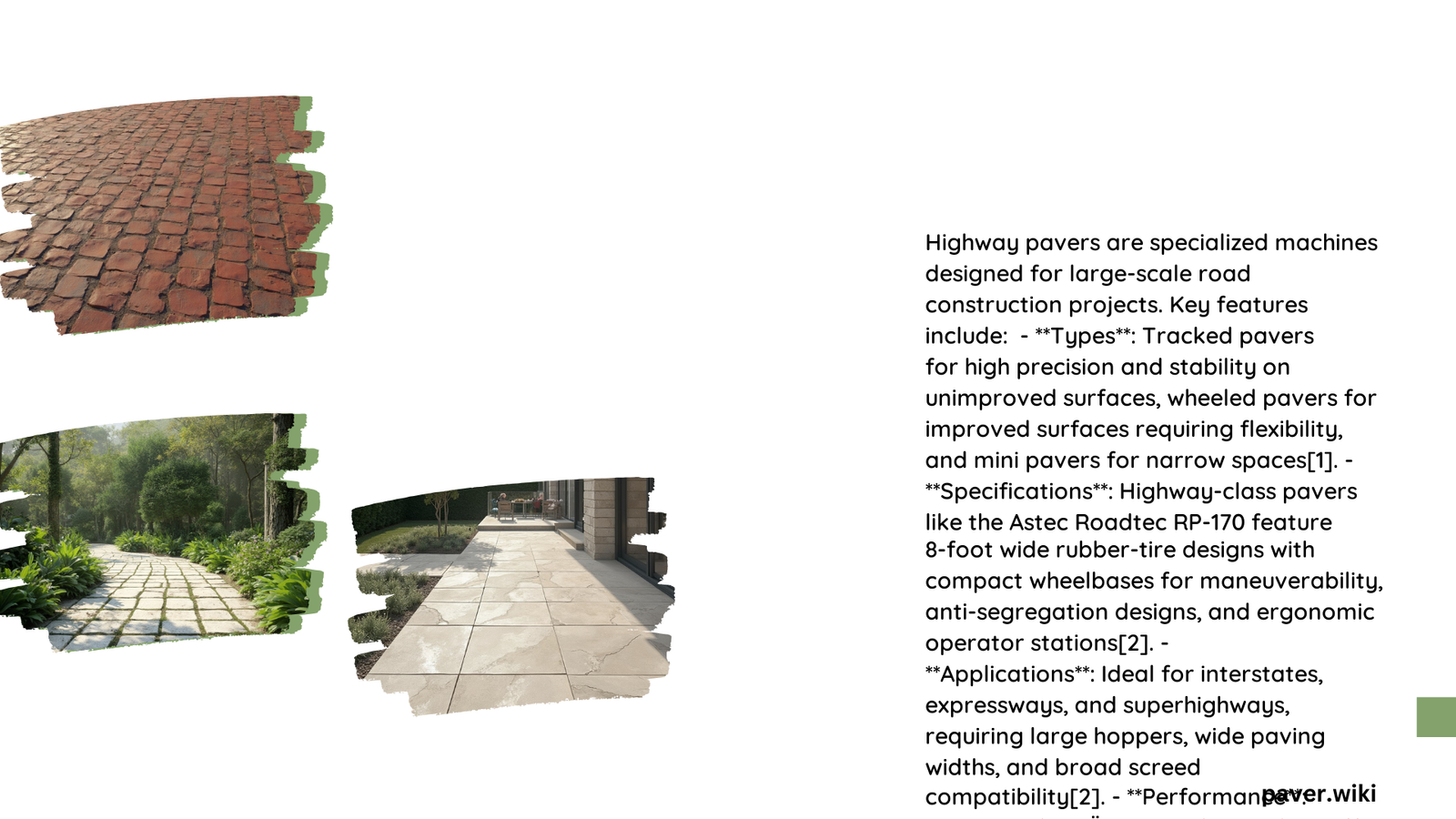Highway infrastructure demands robust and resilient paving solutions that can withstand extreme traffic loads, environmental challenges, and long-term performance requirements. Modern pavers for highway construction leverage advanced materials, sophisticated engineering techniques, and innovative technologies to create durable, sustainable road networks that ensure safe and efficient transportation across diverse geographical landscapes.
What Are the Primary Types of Pavers for Highway Construction?
Asphalt Pavers: Flexible and Cost-Effective Solutions
Asphalt pavers represent a critical component in highway construction, offering versatile and adaptable road-building technologies. These specialized machines distribute hot asphalt mixtures with precision, creating smooth and durable road surfaces.
Key Characteristics of Asphalt Pavers
- Material Composition: Blend of asphalt cement, aggregate materials
- Typical Layer Thickness: 4-6 inches
- Average Lifespan: 20-30 years
- Load-Bearing Capacity: High performance under heavy traffic conditions
Concrete Pavers: Robust and Long-Lasting Infrastructure
Concrete pavers provide exceptional durability and strength, making them ideal for highways experiencing extreme traffic and environmental conditions.
Performance Metrics of Concrete Pavers
- Compressive Strength: 4,000-6,000 PSI
- Reinforcement Requirements: 100-120 tons of steel per lane-mile
- Expected Lifespan: 30-50 years
- Environmental Resistance: Superior performance in extreme temperatures
How Do Installation Techniques Impact Paver Performance?

Subgrade Preparation Strategies
Successful highway paver installation begins with meticulous subgrade preparation:
- Precise Grading: Ensure perfect horizontal alignment
- Comprehensive Compaction: Achieve minimum 95% density
- Geotextile Integration: Enhance soil stability
- Drainage Considerations: Prevent water accumulation
Base Layer Development
| Material Type | Thickness Range | Load Distribution | Drainage Capability |
|---|---|---|---|
| Crushed Stone | 4-12 inches | Excellent | High |
| Recycled Concrete | 4-10 inches | Good | Moderate |
| Stabilized Aggregate | 6-8 inches | Very Good | High |
What Cost Considerations Influence Paver Selection?
Comparative Cost Analysis
Asphalt Pavement Costs
- Material Expenses: $2-$5 per square foot
- Labor Costs: $1-$3 per square foot
- Maintenance Expenditure: 10-20% of initial investment
Concrete Pavement Costs
- Material Expenses: $5-$10 per square foot
- Labor Costs: $2-$5 per square foot
- Long-Term Performance: Superior durability
What Factors Determine Optimal Paver Selection?
Critical Evaluation Criteria
- Traffic volume projections
- Regional climate conditions
- Budget constraints
- Maintenance accessibility
- Environmental sustainability requirements
Best Practices for Highway Paver Implementation
Performance Optimization Strategies
- Conduct comprehensive material testing
- Utilize performance-specified cement technologies
- Implement advanced compaction techniques
- Monitor ongoing pavement performance
Emerging Trends in Highway Paver Technologies
Innovative Developments
- Recycled material integration
- Self-healing concrete technologies
- Enhanced thermal stability mixtures
- Improved environmental resistance formulations
Conclusion
Highway pavers represent a complex engineering discipline requiring sophisticated material science, precise installation techniques, and strategic long-term planning. Successful implementation demands comprehensive understanding of performance characteristics, cost considerations, and emerging technological innovations.
Reference:
– FHWA Pavement Materials Guide
– Asphalt Pavement Technology
– Concrete Pavement Research
